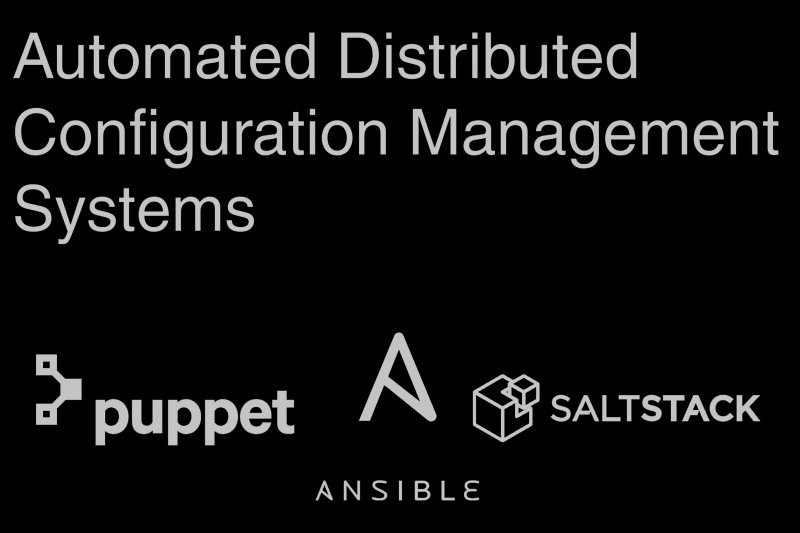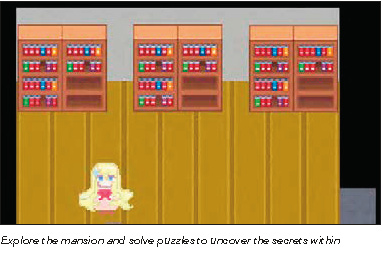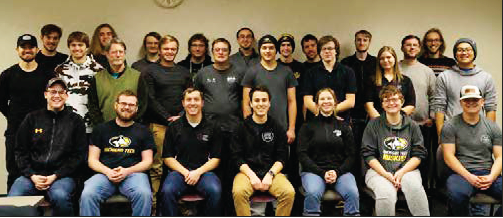
College of Computing students participated widely at Michigan Tech’s Design Expo 2020, which was held virtually in April.
Participating Enterprise Teams included Humane Interface Design Enterprise (HIDE), IT Oxygen, and Husky Game Development.
College Senior Design Teams developed a cybersecurity “Penetration Testing Course,”a “Cloud Computing Cost Analysis,” and an “Automated Distributed Configuration Management Systems.”
See project details below. Learn more about Design Expo here.

Senior Design Team: Penetration Testing Course
Team Members: Chris Koch, Joe Bartkowiak, Kelson Rose, Austin Clark, Computer Network and System Administration
Advisor: Yu Cai, College of Computing
Project Overview: To meet the need for new courses in the new Cybersecurity degree program, our team was tasked with developing a Penetration Testing course, which includes the business how-to as well as technical skills necessary to succeed in the field as a professional ethical hacker. We delivered a completed course, including a chosen course textbook, slides, an online lab set with accompanying lab manuals, and exams. GenCyber is a Michigan Tech summer program for local younger students. We provided instructional material, utilized Google Interland activities for younger students, and created the GenCyber camp curriculum to further develop and improve this course—another step toward the future of cybersecurity.

Senior Design Team: Cloud Computing Cost Analysis
Team Members: Alex Kuhn, Austin Walhof, Ryan Jacobson, and Stephen Grobbel, Computer Network and System Administration
Advisor: Todd Arney, College of Computing
Project Overview: Our team compared the cost of running services in a cloud environment between the three largest service providers: Amazon Web Service, Google Cloud Platform, and Microsoft Azure.

Senior Design Team: Automated Distributed Configuration Management Systems
Team Members: Andrew Hitchcock, Tim Graham and Derek Laker, Computer Network and System Administration
Advisor: Tim Wagner, College of Computing
Sponsor: College of Computing
Project Overview: Systems administrators working in environments of all sizes are rapidly adopting configuration management systems to automate provisioning and deployment, enforce system configuration, and streamline their work. However, it can be difficult to figure out which product to choose. Our project consisted of deploying three of the most popular products on the market today— Puppet, Ansible, and Saltstack—and comparing the computing resources that they used, their ease of use, and the scenarios that they would be most fit for.

Enterprise Team: Husky Game Development (HGD)
Team Leaders: Colin Arkens and Xixi Tian, Computer Science
Advisor: Scott Kuhl, Computer Science
Sponsor: Michigan Technological University Pavlis Honors College’s Enterprise
Program Background: Husky Game Development (HGD) is a student-run Enterprise focused on developing video games. Each year, Husky Game Development breaks up into subteams of around six students who experience a full game development cycle, including ideation, design, and end product. HGD explores a wide variety of video game engines and platforms, including Windows, Android, Xbox, and an experimental Display Wall.
Overview: Do you know that old mansion down on the corner? Of course you do. Everyone does. No one who’s entered it was ever seen again. Will you be? Lost in Mazie Mansion is a 2D mystery-puzzle game. To reform the mansion and escape, you’ll need the help of Mazie, the only one to nearly solve the mystery. Play by the house’s rules, dodge monsters patrolling the halls, solve puzzles, and find the keys to get Mazie’s memory back.

Enterprise Team: IT Oxygen
Team Leaders: Calvin Voss, Computer Science; Zack Metiva, Computer Network and System Administration
Advisors: Nagesh Hatti, Electrical and Computer Engineering; James Walker, Computer Science
Sponsors: DENSO, Ford Motor Company, Little Brothers Friends of the Elderly, Mel and Gloria Visser, Northern Specialty Health, Michigan Technological University Pavlis Honors College’s Enterprise Program, Milan and Shailee Lathia
Background: IT Oxygen is a cross-disciplinary, student-run Enterprise that specializes in Information Technology (IT) for student organizations and businesses, with a focus on developing Information System and Information Technology solutions. Team members work on real-world projects that foster skill development and utilize business intelligence. Areas of interest include systems and information analysis, software development, database design, data sciences, cybersecurity, and web-based application development.
Overview: This year, the IT Oxygen Enterprise is working on projects sponsored by Ford, Little Brothers Friends of the Elderly, Northern Specialty Health, and DENSO. In the area of data analytics, IT Oxygen is building predictive models and applying statistical analyses to understand the relationship between technical obsolescence and purchasing strategy for automotive electronics—thanks to support from DENSO. For Ford, a team has been working with the Wireless Communication Enterprise (WCE) to provide data analysis and storage for a smart home energy management system. Finally, IT Oxygen is also collaborating with WCE on continued efforts to improve Little Brothers’ holiday resource management and medical transportation scheduling systems.

Enterprise Team: Human Interface Design Enterprise (HIDE)
Team Leaders: Christopher Ward and Justin Martin, Computer Science
Advisor: Robert Pastel, Computer Science
Sponsor: CCDC Ground Vehicle Systems Center (US Army)
Background: The members of Humane Interface Design Enterprise (HIDE) come together to design, develop, and evaluate user interfaces. The goal is to make daily work more efficient and easier to manage. As a whole, the team works together to design and test different applications for industry sponsors that can be used on Android, iPhone, and other devices. HIDE accomplishes these projects by combining knowledge from multiple disciplines, such as computer science, psychology, and human factors. HIDE team members can get involved in various stages of the design process, from developing an app by programming, to evaluation by designing usability tests and analyzing data.
Overview: Tempi.st is a project from the Ground Vehicle Systems Center, a research center for the US Army located in Warren, Michigan. Tempi.st is a program designed to provide students with the opportunity to work on a real-world project, and is aimed to connect the students to an industry where they can actively participate in research in order to expand their knowledge base and deliver new ideas to the industry in return.
Our objective is to utilize Raspberry Pis to collect weather data in real time for its given location, and to send the collected data to a user through a device such as a phone, computer, or tablet in the form of an alert or by the user opening a web page. How this will be implemented is purely up to our team. We will take these basic specifications and put our own twist to it.